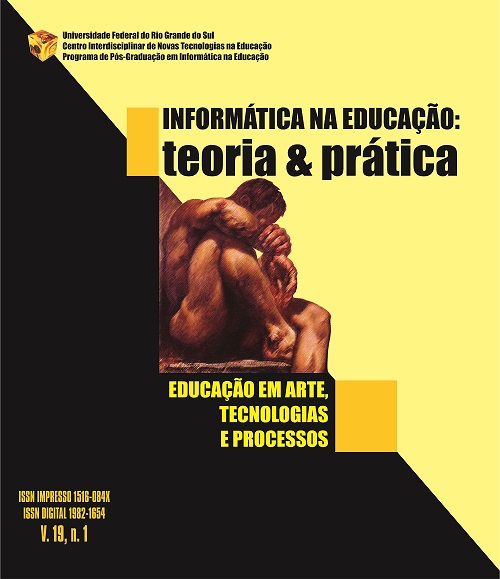Identities of art education in contemporary India: Reality, Rhizome and Assemblage
DOI:
https://doi.org/10.22456/1982-1654.57824Keywords:
art, education, Deleuze & Guattari, rhizome, assemblage, vedanta, IndiaAbstract
In this paper, I present an understanding of art and visual culture education in India in a framework that employs Deleuze and Guattari’s theories. I place this research study in context of contemporary trends in education policy and political climates in India. I suggest that research on understanding art education practices in emerging geographies be conducted with a view to gain a cohesive social understanding, rather that isolated views on curriculum and pedagogy, with pre-determined understandings of what art education is, and what it does. The paper is structured in the following manner: After setting a context for this paper, I provide an overview of the study itself. I then describe the development of my own study exploring the identity of Indian art education and art educators using a hybrid lens of Vedanta philosophy and Deleuze and Guattari’s theories of rhizome and assemblage. Explaining these concepts, I illustrate an application of this theoretical lens towards reading art education practices both of my research participants, as well as of developments of art education in ontemporary India. This paper thus offers a strategy to conduct research in art education employing a rhizomatic approach to structuring research, and analyzing data using the concept of assemblage. I make these suggestions in order to make multiple experiences and voices within the research relevant and respected, especially when read in international and global contexts.Downloads
Download data is not yet available.
References
Deleuze, G., & Guattari, F. (1987a). A Thousand Plateaus: Capitalism and Schizophrenia. (B.
Massumi, Trans.) (1st ed.). University of Minnesota Press.
Deleuze, G., & Guattari, F. (1987b). Introduction:Rhizome. In B. Massumi (Trans.), A Thousand
Plateaus: Capitalism and Schizophrenia (pp. 3–25). University of Minnesota Press.
Sharma, M. (2012). Indian Art Education and Teacher Identity as Deleuzo-Guattarian
Assemblage: Narratives in a Postcolonial Globalization Context (thesis). Ohio State
University, Columbus, Ohio. Retrieved from
http://etd.ohiolink.edu/view.cgi?acc_num=osu1339617524
Wise, J. M. (2005). Assemblage. In C. J. Stivale (Ed.), Gilles Deleuze (pp. 77–87). Acumen
Publishing Ltd.
Downloads
Published
2016-06-02
How to Cite
SHARMA, M. Identities of art education in contemporary India: Reality, Rhizome and Assemblage. Computers in education: theory & practice, Porto Alegre, v. 19, n. 1, 2016. DOI: 10.22456/1982-1654.57824. Disponível em: https://seer.ufrgs.br/index.php/InfEducTeoriaPratica/article/view/57824. Acesso em: 24 jun. 2025.
Issue
Section
Artigos
License
The copyright for papers published in this journal belong to the author, with rights of first publication for the journal. As the papers appears in this publicly accessed journal, the papers are for free use, receiving their credit, in educational and non-commercial uses. The journal will allow the use of the papers published for non-commercial purposes, including the right to send the paper to publicly accessed databases.
Received 2015-08-14
Accepted 2015-09-21
Published 2016-06-02
Accepted 2015-09-21
Published 2016-06-02


